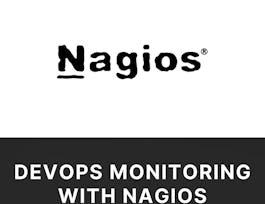Projects are all around us. Virtually every organization runs projects, either formally or informally. We are engaged in projects at home and at work. Across settings, planning principles and execution methodologies can offer ways in which projects can be run more effectively and efficiently. Project management provides organizations (and individuals) with the language and the frameworks for scoping projects, sequencing activities, utilizing resources, and minimizing risks.


Fundamentals of Project Planning and Management
Taught in English
Some content may not be translated
336,330 already enrolled
(9,826 reviews)
Recommended experience
What you'll learn
How to initiate, define and organize a project
How to develop a project plan, including scoping, sequencing tasks, and determining a critical path
How to assess, prioritize and manage project risk
How to execute projects and use the earned value approach for monitoring and controlling progress
Skills you'll gain
Details to know

Add to your LinkedIn profile
5 quizzes
See how employees at top companies are mastering in-demand skills


Earn a career certificate
Add this credential to your LinkedIn profile, resume, or CV
Share it on social media and in your performance review

There are 4 modules in this course
Welcome to the course -- we're excited you're here! In our first week, we'll gain an understanding of what a project is, what it isn't, and why that matters. We'll consider how projects are defined and a project’s three objectives. We'll look at a model for examining a project’s organization and its stakeholders, and then analyze those stakeholders using a power/interest grid. We'll look at the main reasons why many projects fail and then learn how to measure success. Finally, we'll review the key stages in the project life cycle and highlight the important features of each stage.
What's included
8 videos4 readings1 quiz3 discussion prompts
During our second week, we'll start digging into the details, focusing on how to develop a project plan. We'll understand why we plan and what a plan should or should not include. We'll discuss the process of scoping out a project and see tools that can help us identify what should be included in our project. We'll learn about sequencing project tasks and the nature of the dependencies among project activates. We'll learn how to determine a project’s duration and critical path, how it is determined, and why it is useful. We'll see how we should schedule a project and, finally, we’ll review how you can make changes to a plan to support your overall project objectives.
What's included
9 videos1 reading1 quiz1 discussion prompt
In our third week, we'll consider the risk and uncertainties projects face. We'll understand what is risky about projects. We'll identify and assess project risks and prioritize these risks in order to focus our attention on those most impactful to the project. We’ll consider schedule risks in detail and ask, "What is the likelihood of finishing on time? What are the drivers that may cause delays in my project?" We'll see how a project budget can be set to include a contingency. Finally, we'll consider situations with a high degree of ambiguity and identify methods than can useful in these situations.
What's included
9 videos1 reading1 quiz1 discussion prompt
In our final week, we'll move from plan to action and consider the execution phase of a project. We'll learn about the earned value approach for monitoring and controlling progress. We'll consider the individuals who are executing the project and how their habits impact project progress. We'll discuss some alternative methods for project execution such as Agile, Scrum, and Kanban. Finally, we'll review and summarize the course, and our journey from project definition through execution and completion.
What's included
9 videos2 readings2 quizzes2 discussion prompts
Instructor

Offered by
Recommended if you're interested in Business Essentials

Howard University

Coursera Project Network

Coursera Project Network

Coursera Project Network
Why people choose Coursera for their career




Learner reviews
Showing 3 of 9826
9,826 reviews
- 5 stars
78.53%
- 4 stars
18.93%
- 3 stars
1.84%
- 2 stars
0.31%
- 1 star
0.37%
New to Business Essentials? Start here.

Open new doors with Coursera Plus
Unlimited access to 7,000+ world-class courses, hands-on projects, and job-ready certificate programs - all included in your subscription
Advance your career with an online degree
Earn a degree from world-class universities - 100% online
Join over 3,400 global companies that choose Coursera for Business
Upskill your employees to excel in the digital economy
Frequently asked questions
Access to lectures and assignments depends on your type of enrollment. If you take a course in audit mode, you will be able to see most course materials for free. To access graded assignments and to earn a Certificate, you will need to purchase the Certificate experience, during or after your audit. If you don't see the audit option:
The course may not offer an audit option. You can try a Free Trial instead, or apply for Financial Aid.
The course may offer 'Full Course, No Certificate' instead. This option lets you see all course materials, submit required assessments, and get a final grade. This also means that you will not be able to purchase a Certificate experience.
When you purchase a Certificate you get access to all course materials, including graded assignments. Upon completing the course, your electronic Certificate will be added to your Accomplishments page - from there, you can print your Certificate or add it to your LinkedIn profile. If you only want to read and view the course content, you can audit the course for free.
You will be eligible for a full refund until two weeks after your payment date, or (for courses that have just launched) until two weeks after the first session of the course begins, whichever is later. You cannot receive a refund once you’ve earned a Course Certificate, even if you complete the course within the two-week refund period. See our full refund policy.

